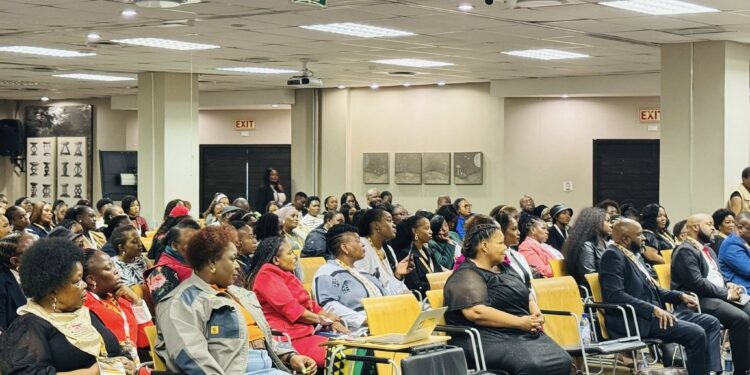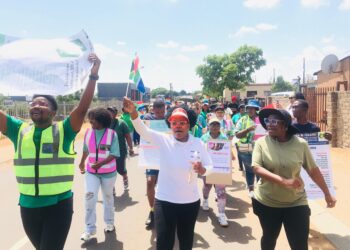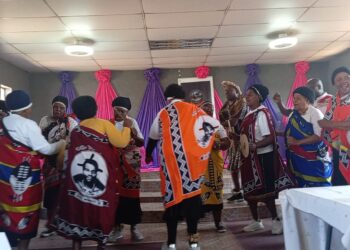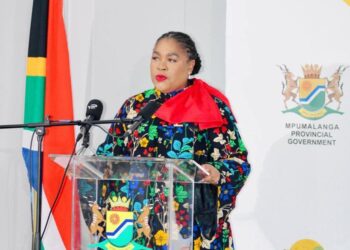Mbombela— The dust rising from construction sites across Mpumalanga tells a new story, one where women are no longer standing on the sidelines waving red flags, but wearing construction helmets, building plans and leading multimillion-rand projects.
For decades, the construction sector was considered a man’s world. Women were often relegated to the background, given only minor subcontracting roles or pushed into administrative tasks.
On Tuesday, 19 August, the Ehlanzeni District Disaster Centre was filled with voices of women who decided their place is on the frontline of building infrastructure. The Mpumalanga Premier Mandla Ndlovu hosted a dialogue with women contractors to listen, engage and chart a way forward for inclusive development in the sector.
The energy in the room was electric.
Some women shared stories of how government initiatives, especially the Sakhabakhi infrastructure programme, transformed their businesses.
One contractor recalled how she once relied on small subcontracting jobs that barely kept her company afloat. “Through government support, I was able to move from survival to growth. Today, I don’t just build houses and clinics, I create jobs for others too. That is what real empowerment looks like.”
For many, the journey from subcontractor to project leader was not only a personal victory, but also a breakthrough for other women aspiring to enter the industry.
What became clear during the dialogue is that women in construction are building more than bridges, roads, and schools. One contractor said, “When we build, we don’t just see cement and bricks. We see classrooms for children, hospitals for families, and roads that connect communities. We are building dignity and opportunity.”
Another, Ingrid Nkosi, said: “This dialogue with the premier gives us a chance to be heard. We are grateful to be included, because when women are given a seat at the table, we bring others with us.”
Yet, beneath the celebration, there were sobering testimonies. Women spoke candidly about the darker side of the construction industry — intimidation, extortion and mafia-style operations.
One of the women, a proud product of the Expanded Public Works Programme (EPWP), stood up with a voice so dense with anger and fear. She pleaded with the premier Ndlovu to rescue them from the grip of extortion, describing how the so-called ‘30 percent fee’ demanded by ‘construction mafias’ has destroyed their work. Too often, she said, women contractors are forced to abandon projects simply to stay alive.
These ‘mafias’ are not strangers in the shadows, she said, but politicians themselves, councillors who should be protecting communities instead of preying on them. “You win a contract fairly,” she said. “Someone shows up demanding 30 percent of your project. If you don’t give in, they threaten you or shut your work down. It’s terrifying. Every day, we are scared.”
Director-General of the Mpumalanga Provincial Legislature Margaret Skhosana assured women in construction that their concerns would not end in talk, but in action, announcing 19 concrete resolutions backed by clear timelines and accountable departments.
These include making the empowerment engagement an annual event, involving supply chain officials to guide compliance, exploring funding options for women-owned companies, creating women-only construction panels, addressing late payments, aligning training with real projects, and improving safety and accountability on worksites.
Skhosana further committed the government to support black construction material suppliers, tackling construction mafias, and ensuring agencies like Construction Industry Development Board (CIBD), National Empowerment Fund (NEF) and Small Enterprise Finance Agency (SEFA) are part of future engagements.
“We cannot allow criminals to hijack development in our province. Women in construction deserve to work without fear. You are not only building infrastructure, you are building the future of Mpumalanga,” said the Premier.























